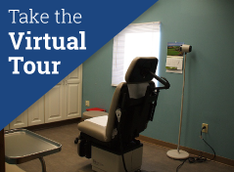Scope of Practice
What do Physician Assistants or Advance Practice Registered Nurse-Nurse Practitioners do?
PA-Cs and APRN-NPs provide health care in specialty/defined areas, which can include but are not limited to:
- Performing physical exams and taking health histories
- Assessing and evaluating common symptoms of acute illnesses such as colds, infections and asthma
- Ordering, conducting, and interpreting appropriate diagnostic and laboratory tests
- Prescribing and managing medications for common or chronic conditions
- Managing chronic health problems such as diabetes, high blood pressure and depression
- Developing care plans
- Educating and counseling patients and families
- Health screening, illness prevention, and wellness promotion such as blood pressure screening, nutrition counseling, immunization and smoking cessation programs
- Coordinating health care services
- Evaluating quality of care by reviewing the outcomes of care
- Providing prenatal care, family planning, and management of normal pregnancies
- Identifying health needs that require referral for more specialized care
- Collaborating with other health care professionals
Is it ok to see a PA-C or APRN-NP instead of a physician?
The PA-C or APRN-NP is educated and licensed to be able to diagnose, treat, and manage common health problems and chronic conditions within their specialty area. PA-Cs and APRN-NPs consult with physicians when appropriate and will refer you to a physician or other health care provider as your condition warrants. Research has shown that most of the reasons most persons seek medical attention can be managed effectively by a physician assistant or nurse practitioner.
Will my insurance pay for the services of the PA-C or APRN-NP?
Services of the physician assistant or nurse practitioner are billed and reimbursed in the same manner as a physician.
Physician Assistant
Scope of Practice for PA
A Physician Assistant (PA) is a health care professional licensed to practice medicine with physician supervision. PAs are found in all areas of medicine, including primary care, surgery, and surgical subspecialties. They are trained in intensive education programs certified by the Accreditation Review Commission on Education for the Physician Assistant (ARC-PA).
What is the difference between a PA and a physician?
In some schools, PAs attend many of the same classes as medical students. The main difference between PA education and physician education is the amount of time spent in formal education. Medical students are required to do an internship, and most also complete a residency. PAs, however, do not have to undertake an internship or residency.
What does “PA-C” stand for?
“PA-C” stands for Physician Assistant-Certified. It means that the provider has undergone testing by the National Commission on Certification of Physician Assistants (NCCPA). To maintain that certification, they must log 100 hours of continuing medical education every two years and take the recertification exam every six years.
Advanced Practice Registered Nurse – Nurse Practitioner
Scope of Practice for NP
An Advanced Practice Registered Nurse-Nurse Practitioner (APRN-NP) is a registered nurse who has obtained additional education and licensure to manage common health problems and chronic conditions including prescribing treatments and medications. Most APRN-NP’s have a master’s or doctoral degree in nursing. All must pass a national certification examination. Nurses educated as either a nurse practitioner or a clinical nurse specialist may qualify for licensure as an APRN-NP if they meet all of the licensure requirements. APRN-NPs practice in collaboration and consultation with physicians and other health care practitioners. APRN-NPs are eligible for federal controlled substance registration. APRN-NPs may prescribe controlled substance Schedules II through V. APRN-NPs may receive samples.
What are Advance Practice Registered Nurses-Nurse Practitioners?
Nurse Practitioners are registered nurses who have additional education and licensure to manage common health problems and chronic conditions including prescribing treatments and medications. They are frequently called an APRN-NP or NP for short.
What is their education?
Most NP’s have a master’s or doctoral degree in nursing. The educational program for nurse practitioners is based on the nursing model of providing care, which is a holistic model focusing on health prevention and maintenance as well as diagnosis and treatment of illness. NP’s must pass a national certification examination.
Education and certification are available in specialty areas of practice such as Women’s Health/ OB-GYN, Neonatal, Pediatrics, Adult, Family, Gerontology, Acute Care and Psychiatric. Nebraska has three colleges offering advanced practice nursing education, all at the master’s level: University of Nebraska Medical Center, Clarkson College and and Creighton University.
In Nebraska, nurse practitioners are required to have both a current RN license and an APRN-NP license.

